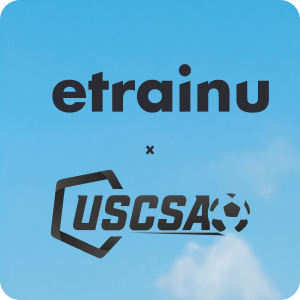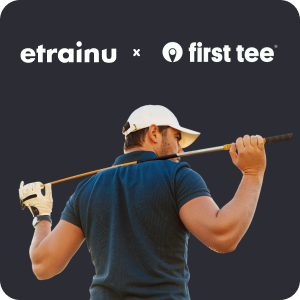
What is a Learning Management System (LMS)?
A learning management system (LMS) is a powerful tool that is actively used by organisations around the world in order to provide their staff, students, or community with a better online learning experience.
The eLearning industry has seen positive impacts on how businesses have embraced online training platforms. According to Fortune Business Insights, the global LMS market is projected to grow from $16.19 billion in 2022 to $40.95 billion by 2029. The popularity of online learning and training is a key factor driving growth, along with the mass adoption due to the COVID-19 pandemic.
Most online learning runs through a learning management system. Also referred to as an LMS, online training platform and elearning platform. LMS’s are online software or applications designed to manage the learning process of courses. Where organisations have the ability to develop, track, and report learning content all in one platform.
Generally, a robust LMS infrastructure should:
- Be centralised and provide control management processes
- Be able to independently self-serve (users can directly enrol into courses etc.)
- Help to create and distribute learning course content efficiently
- Support educational and training standards for compliance
- Allow upload of personalised course content though course authoring tools
- Be able to integrate with other platforms, such as HR/Payroll, membership, CRM and more.
Ultimately, an LMS is intended to make learning easily accessible for the learner and to provide easy administration for organisations training their employees.

What is the purpose of an LMS?
There's no single answer to this question - every organisation has different needs and goals.
There are many benefits to be had with the purpose of using an LMS. For one, it can help to improve the efficiency and effectiveness of the organisation's training programs. It can also save the organisation’s time and money by reducing the need for travel and other associated costs. According to an IBM study on The Value of Training, IBM saved almost $200 million by switching from traditional training to eLearning.
Additionally, an LMS can help to improve employee engagement and retention by providing a more convenient and effective way to deliver training. Organisations that provide professional training and use an LMS can increase employee retention by up to 92%.
How does an LMS work?
The growing demand for the cloud is boosting the growth for cloud based learning systems. With cloud based learning management system growing with a CAGR of 24.59% during the forecasted period 2021-2029 it’s not surprising that the most common type of LMS is a cloud-based LMS where it can be accessible anywhere, at any time - using a username and a password.
It offers greater flexibility, to easily scale up any organisation’s eLearning process and immediately access pre-built course content.
As a single source for training content, an LMS is used to plan, implement, and assess a learning process. Typically, a learning process includes course content, instructor-led training, self-paced learning, and social learning opportunities.
Every user in the LMS is assigned a permission-based role that determines what level of access they have in various areas of the LMS. There are two main user roles in an LMS platform, which are:
1. LMS Administrator Role
Usually, administrators will be employees of an organisation that sit within the HR department and will be primarily responsible for the day-to-day LMS operations. As an administrator, they’ll have a high level access to the LMS dashboard. This role enables users to upload courses, add users/learners, deliver knowledge and evaluate the results.
2. The Learner Role
As a learner, they’ll be among many other learners using the platform. The LMS dashboard gives them access to courses that they are assigned to by the administrator and shows additional courses of relevance to enrol into. It also shows their learner progress, course completion, and any events that the organisation they are a part of is hosting.

What are the features of an LMS?
LMS’s vary in features and functionality, but most include tools for creating and delivering training content, managing learner progress, and tracking completion rates. Some features also include social learning, performance management, and gamification.
It’s important to align the organisation’s training goals and how an LMS can help to achieve them, in order to get the best engagement and return on investment (ROI). The effectiveness of training engagement relies on how material is delivered and the best learning experience possible. Implementing an LMS is a significant investment, so it makes sense to consider functionality and features.
Let's look at the five must-have essential features in learning management systems.
1. Integrations with Internal Systems
Integrating your LMS with existing internal business software platforms is an important feature of any learning management system. This includes platforms such as HR/payroll, membership, CRM and more. This helps create a seamless data sync between the business’s ecosystem of tools and the LMS.
2. Training Library
A training library is a must-have feature for any LMS. It is the best way to store and organise various training materials. The library can be a repository of video and audio files, PDFs, documents, templates, and presentations. It can also include quizzes or interactive exercises that learners can access from their dashboard.
3. SCORM Compliant LMS
The ability to accept Shareable Content Object Reference Model (SCORM) files is one of the most important LMS features, as it allows administrators to create, edit and upload courses with ease. Essentially by packaging up different content components into a ZIP file that can then be uploaded to the LMS.
This feature allows instructors to create customised courses for a program or curriculum. It can be based on a skill level, learning style, or any other factor that the instructor deems necessary for a particular course. It also allows instructors to use different materials such as videos, quizzes and activities - these are referred to as SCORM files.
4. Completion and Progress Reporting
One of the must-have LMS features is completion and progress reporting. Administrators have visibility over the completion of quizzes or interactive exercises. This feature is a great way to keep track of the learners course progression, so as to proactively step in to offer help and support.
Administrators are able to run reports by utilising the following metrics:
- State
- Course
- Bundle (group of courses)
- Individual participant
- Group of participants
- Current and historical courses
- Completion status, e.g. Complete, In Progress, or Not Started
These metrics help give a complete picture of a learner’s behaviour in relation to their progress, performance and rates of completion. This helps to understand how effective eLearning courses are.
5. Support and Training
Support and training are essential to any business or organisation that wants to be successful in today’s digital world. An LMS provider should be able to swiftly resolve support tickets, training modules or webinars, and a knowledge base.
When thinking about implementing an LMS for an organisation, these are some of the core features and functionality to keep in mind. Since there are a lot of different platforms in the market, it's important to know the “must-haves” from the “nice-to-haves” to get the most out of your online training platform.

What are some learning management system use cases?
LMS’s have become increasingly popular in recent years, with a variety of use cases in different industries. It is widely used in corporate, healthcare, non-profit, and government organisations to train employees, partners, and customers. By providing an accessible platform to create, deliver, track or even measure the effectiveness of training and development programs, onboarding, compliance training, online education, and accreditation management.
Some common use cases for a learning management system include:
1. Training and Development
Learning management systems is a popular tool for training the workforce. LinkedIn’s 4th Annual 2020 Workplace Learning Report reveals that due to the impact of COVID-19, 66% of L&D professionals expect their companies to spend more on virtual-instructor-led training and online learning. Many companies are looking to invest more of their learning and development (L&D) dollars into a learning management system, which not only delivers and tracks training but also provides effective results.
An LMS is primarily used to deliver training content, track employee progress, and measure the effectiveness of training programs. As well as, developing and managing online learning programs. It can have a positive impact on an organisation to help to improve the efficiency and effectiveness of the organisation’s training programs, and also help to reduce the costs associated with training and development.
2. Onboarding
An LMS can be a powerful tool for onboarding new employees from the moment they start. With an LMS, it can give new hires access to orientation materials, training courses, and other resources they need to be successful in their new role. It can also help track their progress and ensure they are completing all the necessary training.
Using an LMS for onboarding is a great way to set up new hires for success. Organisations with a strong onboarding process improve new hire retention by 82% and productivity by over 70%. An online onboarding platform helps with better delivery and management to automate repetitive tasks, create courses easily, and saves training time. While it’s an efficient way to get new employees up to speed on internal systems, it also has been shown to improve retention and satisfaction rates.
3. Compliance Training
Taking the hassle out of compliance training, organisations can easily provide their employees with mandatory training that’s usually enforced externally by the government and internally by an organisation’s policies and procedures. Compliance training on the LMS ensures organisation’s to become audit ready, minimises risk and builds a workplace culture where compliance is highly valued.
With now 61% of mandatory or compliance training being delivered online, the shift to online is gaining popularity. The LMS also ensures sustainable business success that saves time through automation, reduces error rates, and keeps track of teams compliance status. It’s also an opportunity to show employees that their organisation values their safety and wellbeing.
4. Education
One of the most common use cases for an LMS is in the education sector. With 70% of students preferring online classes over traditional classroom settings. Learning management systems are used in education to provide students with the tools and resources that they need to perform well in a course.
The trend now is to provide a more personalised learning experience for students. They help administrators and students better understand the students' progress with the ability to track student progress, deliver content, and manage their learning activities. What’s more is that LMS’s are now creating online communities that enable interaction and collaboration.
5. Accreditations
Another popular use case for learning management systems is accreditation management - combining both online and in-person practical sessions into one platform. An accredited institution needs to be able to demonstrate that its learners are learning what they are required to be learning. This is where a learning management system comes in. An LMS can be used to track a learner’s progress and performance, and to generate reports that show what they are learning.
This is a particularly useful tool in the sports industry. Where sporting organisations can deliver accredited training to their community members that can be either a referee, coach, or volunteer.
The increasing adoption of eLearning and the growing need for remote learning due to the COVID-19 pandemic has further driven the demand for LMSs. So, searching for an LMS provider that's a perfect fit for the right use case requires knowing what the right criteria is and researching providers that can deliver on your organisation’s goals.
Final thoughts
While there is no one-size-fits-all solution for learning management systems, it is clear that they will continue to play a crucial role in learning and development. As technology advances, learning management systems will become more user-friendly and customisable, making them even more valuable to organisations from various industries with different goals.
Learn more about how your organisation can benefit from etrainu’s learning management system here.

.png)


